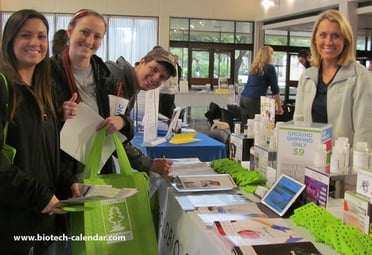Traumatic brain injury, or TBI, is the leading cause of disability among U.S. military personnel and veterans. What’s more, 50% of people with TBI develop spontaneous seizures. If the seizures become recurrent then the condition qualifies as Post-Traumatic Epilepsy, PTE. Now thanks to a 3 year, $750,000 research grant from the Department of Defense and the Army, researchers at Texas A&M will conduct a study on TBI to uncover the molecular and epigenetic mechanism of PTE.
How does post-traumatic epilepsy differ from traditional epilepsy?
According to the Epilepsy Foundation, with all types of epilepsy seizures are linked to abnormal electrical discharge in the brain. As opposed to the typical medical or neurologic conditions that lead to epilepsy, PTE is caused by external trauma to the brain, most often the frontal or temporal lobes. The more severe the head injury, the more likely PTE becomes.
In an article for Vital Record, Texas A&M’s news site, Professor Smaba Reddy, of the College of Medicine’s Department of Neuroscience and Experimental Therapeutics, explained, “PTE is a devastating brain disease characterized by repeated seizures that are often medically-uncontrollable. Because there is physical trauma in the brain, many of our medications to stop seizures simply don’t work in these cases.”
How will this study help our understanding of PTE?
Some research has indicated that the immune system might cause post-traumatic epilepsy. However, the mechanism is not yet understood. Dr. Reddy and his team hope to change that. He says, “In this project, we seek to identify an epigenetic mechanism by which the brain controls over-excitability and seizures following TBI.” Using experimental models, Reddy will test whether blocking a certain pathway in the brain can disrupt the process that causes PTE. In particular, they will be investigating whether certain drugs already used to treat gastrointestinal and oncological conditions might be helpful. These drugs can inhibit the pathways in question and may turn out to be a simple therapeutic option for preventing PTE in at-risk patients.

A physician examining an artilleryman after he received a mild traumatic brain
injury caused by a nearby explosion. Image courtesy of Wikimedia Commons
Why is the Military Providing This Research Funding?
According to The Epilepsy Foundation, the primary mechanism of brain injury to troops is exposure to a blast. The types of injuries caused by exposure to a blast such as penetrating head injuries and dressed skull fractures greatly increase the likelihood of PTE. “It is estimated that 1/3 of all combat troops in Iraq and Afghanistan are exposed to a blast. Evidence of brain injury has been reported in 61% of returning soldiers who have been exposed to blast injuries. As a result, TBI has become the “signature” injury of the Operation Iraqi Freedom (OIF)/ Operation Enduring Freedom (OEF) troops.” Before the condition can be effectively treated the mechanism must be better understood.
New Products for Researchers at Texas A&M University:
On Friday January 27, 2016 Biotechnology Calendar, Inc. will host the 16th annual BioResearch Product Faire™ at Texas A&M University. This event gives laboratory product and chemical supply companies the opportunity to meet face to face with active researchers and discuss their equipment needs. It is a great opportunity for lab suppliers to display and demonstrate their latest products and increase scientific sales.
Life science professionals are invited to attend the upcoming trade fair to learn about how new tools and techniques can speed up the research process. To to attend the on campus trade fair pre-register by clicking on the button below.

Laboratory suppliers interested in demonstating new research technologies at this trade fair event can visit the link below to find out how they can educate Texas A&M researchers about how their products can facilitate ongoing research programs



